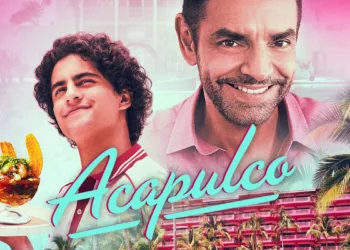They say the past is prologue, yet sometimes we need a fresh perspective to see its wisdom anew. In Common Ground, directors Josh and Rebecca Tickell shine light on traditional ways of farming that just may hold keys for a brighter future.
This engaging documentary explores regenerative agriculture, a set of practices rooted in Indigenous knowledge and modern science. Rather than battling nature, regenerative farming works with it by focusing on soil health. Through impressive before-and-after comparisons and interviews with pioneering farmers, we see how enriched soil yields bountiful, nutritious crops – and how this in turn benefits climate and communities.
Yet the film notes troubles that arose when post-war industry prioritized profits over planet. Mass chemical usage depleted soil while trapping farmers in debt. Vital stories remind us how injustice and unsustainable policies continue impacting people and places. At the same time, Common Ground celebrates diverse voices leading a movement that’s restoring balance from the ground up.
With stars like Laura Dern and Jason Momoa lending narration, the film efficiently outlines both problems and promising solutions. While not without flaws, its upbeat spirit and informative style leave viewers empowered. By cultivating regenerative practices, perhaps we too can grow a healthier future for all.
Stars Shine Light on Sobering Subject
Common Ground packs star power with big names like Laura Dern and Jason Momoa lending their voices. They portray the film as a letter to coming generations, urging we remedy harm done to Earth. Yet for all its good intentions, this framing device has mixed results.
Watching celebrities like Dern read sincere pleas inside a recording booth adds earnestness. You can feel their passion to elevate this urgent issue. But their message risks coming across as aloof or detached from reality many face. It’s hard not to question if activism of the well-off carries the same impact as those on agriculture’s frontlines.
Meanwhile, glimpses of Momoa directly addressing camera feel attempts to personalize the private letter format. Yet this breaks the fourth wall in an unsettling way. The letters alone may have stirred emotion better without interruption.
Overall, the celebrity involvement presents a complicated layer. On one hand, their star power focused global spotlight where it’s urgently needed. However, the letter gimmick sometimes strains more than it strengthens the sobering messages within.
Perhaps a different approach balancing stardom with authentic farmer voices may have resonated more harmoniously. We admire these figures wishing to motivate change through scale of their platforms. But the film would have remained equally strong simply elevating grassroots leaders with their own stirring stories of revival from the roots up.
While celebrity faces caught this viewer’s eye, the sincere reformers interviewed are who left most indelible impressions. Their determined spirit shows what’s possible when people empower each other versus fighting alone. That gives most hope this film can rekindle similar bonds worldwide.
Empowering through Education
While the glitz of Hollywood helps shine a light, Common Ground truly excels through its educational core. The film packs in important context around how our modern food system came to be while offering an inspiring alternative path.
We learn post-World War II, industrial agriculture took root as chemical companies looked elsewhere. Mass machinery and poisons became the norm, stripping soil of nutrients and health. Fertile land grew barren as farmers fell deeper in debt.
It’s a sobering revelation how a few key policy shifts steered everything so off course. From there, a handful of corporations dominated by squeezing out smaller competitors and monopolizing seed supplies. Profits prevailed over planetary well-being.
Enter the pioneers of regenerative agriculture. Following four main principles – no tillage, no chemicals, cover crops, grazing animals – they work with nature rather than against her. The results shown speak volumes as blighted dirt blooms abundantly once more.
Ray Archuleta’s ranching techniques act as a prime example. Letting ruminants roam freely aerates hard ground, their waste naturally fertilizing. Where barren land stretched before, grass now thrives thanks to Ray’s holistic approach.
We also meet Indigenous growers maintaining sacred ancestral methods. For them, nurturing Mother Earth isn’t an innovation but rather tradition. Their profound connection to land holds wisdoms for all to learn from.
Presented through clear, straightforward storytelling, these profiles empower. Viewers absorb insights and visualize regenerative practices in action. Best of all, witnessing triumphs of sustainable stewardship over chemical cartels inspires hope that a greener future remains within reach.
Honoring Hidden Heroes
Common Ground presents some fascinating glimpses into forgotten figures who pioneered more earth-friendly ways. One such hero highlighted is George Washington Carver. As a professor in the late 1800s, he witnessed cotton’s toll on Southern soil. Using clever cover crops to nourish the dirt once more, Black farmers thrived applying his insights.
Yet mainstream acceptance alluded Carver, even as his methods worked wonders. The doc hints how racism prevented wider acknowledgement. It’s sobering certain scientific truths become distorted over time due to prejudices. We must honor all who furthered our understanding, regardless of facets beyond their control.
Indigenous communities too hold wisdoms still undervalued. The film rightfully spotlights Native growers maintaining ancestral methods in tune with nature. Still, brief shots of generic dream-catchers and drums don’t quite do justice to these complex, living cultures.
A bit more context on different tribes’ distinct relationships with the land they steward may have deepened impact. After all, disregard for Native knowledge allowed destructive trends to later emerge. Perhaps acknowledging larger erased histories could yield fresh solutions today.
Overall, Common Ground provides building blocks, but leaves unfinished the examination of racism’s role. The film identifies how handfuls of companies exploited government ties to spread petrochemical dependency. Yet it only scratches the surface of how this disproportionately harmed people of color through reduced options and rampant pollution exposures.
While regenerative agriculture uplifts all, truly unlocking its promise requires facing past wrongs continuing to undermine well-being even now. Only by learning from societies existing in balance with Earth for millennia can we mend severed ties. Their contributions deserve prominence, not peripheral mentions, in charting new paths of sustainability for all.
Reconsidering Our Food Systems
Common Ground casts a critical eye on industrial agriculture’s impacts. The film discusses Monsanto extensively, known for the pervasive weedkiller Roundup. Research shows its glyphosate poses health risks, yet farmers struggled using it as GMO seeds specifically tolerated high doses. Audiences learn how Monsanto’s monopolistic tactics quashed competition too.
With control over seeds, the company could dictate prices while farmers sank into debt – locked into perpetual buying. Patents even barred saving and replanting one’s harvest, signifying lost self-sufficiency. This dependence burdens many economically still today.
Health consequences concern the documentary as well. Widespread chemical usage pollutes surrounding areas and contaminates food. Research links certain pesticides to diseases sadly on the rise. One segment highlights the absurdity of the USDA branding junk foods as “bad” while subsidizing their very crop ingredients.
The film questions this entire model’s viability. Monocropping empties soil of nutrients, accelerating erosion. Regenerative methods show more promise nourishing both earth and communities. Yet change faces challenges as agricultural policies favor industrial norms. The system impacts public costs too, from insurance to welfare supporting those its failing practices harm.
Audiences glimpse how things weren’t always this way. Traditional and Indigenous techniques lived in balance, as caretakers not conquistadors of nature. Perhaps relearning forgotten wisdoms could revive more sustainable livelihoods. Overall Common Ground stimulates thought around whether industrialization truly benefits all, or merely a powerful profiting plant cover crops to revitalize depleted land. Food for though indeed.
Revealing Perspectives
Watching Common Ground, certain biases come through clearly. Directors Joshua and Rebecca Tickell seem passionate believers in regenerative farming. While their commitment to environmental causes is admirable, their stance affects the film’s scope.
Celebrity appearances feature prominently. Yet do famous faces truly convey complex issues best? At times it seems stars simply promote a viewpoint, with shallow discussions that gloss over nuance. A deeper drive into conflicting data or alternative viewpoints would have offered more balanced insight.
Additionally, Common Ground presents regenerative agriculture as a perfect solution. But transitioning an entire system takes realities into account gradually. Cost barriers exist for many to access sustainable, ethical products too. Acknowledging difficulties of implementation would have resonated more honestly.
Relatedly, the film depicts corporate agricultural practices in an overtly negative light. While certain methods damage land seriously, change involves understanding multiple perspectives respectfully. Reducing such a multidimensional issue into moral opposites simplifies reality.
Some also question Common Ground’s equity in highlighting certain farming communities alone. By exploring diverse food access challenges more comprehensively, it could have served a varied audience better. More holistic portrayals consider all stakeholder needs.
Ultimately, filmmakers bring their worldview naturally. But maintaining impartial analysis benefits discussion. Presenting all sides fairly helps audiences conclude for themselves. In leaving heavy-handed advocacy at the door, Common Ground may have found deeper conviction among a thoughtfully considered public. Both urgency and nuance have roles to play.
Fertile Ground for Change
Common Ground tackles nothing less than the future of our food and our planet. In laying out the problems with industrial agriculture, the film illuminates why reform matters so deeply. From the first “letter to tomorrow” to the final farmer profile, it pushes the case for regeneration.
Some criticisms question celebrity emphasis or simplicity. Yet stars engage new audiences, as does clear presentation of complex issues. And by focusing on solutions, the documentary inspires. We meet real people already cultivating healthier soils and communities through tradition and innovation.
The nutrients restoring devastated lands show what’s possible with cooperation, not conflict. Replacing poison with nourishment benefits ecology and economy, demonstrating shared goals across perceived divides. Though challenges remain, visions of vibrant soil hint at restoration’s promising returns.
Where some see problems dismissed, others see room for thought. While distribution and pricing warrant discussion, the film stimulates conversation rather than ending it. Regenerative agriculture shows willing hands can shape a greener future, if we tend our planting with the care Earth and all her inhabitants deserve. With open eyes and Ground’s lessons in mind, perhaps we can help more land and lives flourish.
The film leaves fertile ground for further discovery. But it also deposits many thoughtful seeds, which may yet bear good fruit if we continue cultivating understanding together. With creativity and care, maybe Common visions are not so uncommon after all.
The Review
Common Ground
Common Ground brings an important message about regenerative agriculture and the need for reform. While not without flaws, the film effectively sparks conversation around improving our broken food system. Celebrity narration and simplistic solutions may overly appeal to chose audiences, but the film still highlights real challenges and potential solutions. Overall, the documentary's ability to engage on issues that matter makes its pros outweigh the cons.
PROS
- Informative presentation of key issues regarding industrial agriculture
- Highlights real farmers implementing regenerative practices
- Encourages discussion on improving sustainability and food systems
- Uses compelling graphics and narratives to engage audiences
CONS
- Heavy reliance on celebrity narration
- Potential for oversimplifying complex topics
- Lacks considerations of challenges and counterarguments
- Not comprehensive in examining distribution and equity concerns




























